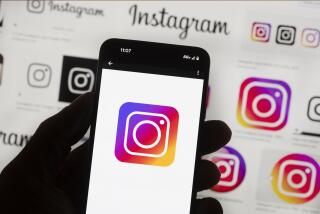Egyptian government shuts off nearly all Internet service
- Share via
The Internet was almost entirely shut down in Egypt on Friday, cutting off a key communication tool that government opponents have been using to organize their protests this week.
The Egyptian government cut off online services between midnight and 12:30 a.m. Egyptian time, said James Cowie, co-founder and chief technology officer of Renesys, an IT company in New Hampshire that helps Internet service providers monitor the security of Web networks and infrastructure.
“It’s something I’ve never seen,” Cowie said. “Over a period of about 20 minutes, it’s as if each of the primary service providers started pulling the routes that lead to them. It wasn’t like a simultaneous withdrawal.
“Nobody flipped an off switch or hit a big red button. It was one by one until they were all gone.”
Possibly the only exception to the suspension was the Noor Group, which hosts an IP address for the Egyptian Stock Exchange, Cowie said.
The situation in Egypt differs from what happened recently in Tunisia, where specific services and websites were blocked; or in Iran during its political unrest last year, when the Internet was slowed down to an almost unusable speed but not entirely shut down, Cowie said.
“Egypt is a modern country; the government doesn’t own the Internet,” he said. “There are private companies of varying sizes that own and operate their own infrastructure. But it seems that they got a call and so they turned it off.”
The Internet blackout was Egypt’s latest move in halting communications amid the unrest.
In addition, the government ordered wireless phone carriers to curb service, according to Vodafone, one of the largest cellphone service providers in the region.
The company said in a statement: “All mobile operators in Egypt have been instructed to suspend services in selected areas. Under Egyptian legislation, the authorities have the right to issue such an order and we are obliged to comply with it.”
On Tuesday, social media websites such as Twitter, Facebook and YouTube were made largely unavailable in Cairo, and on Thursday the government blocked Internet service on BlackBerry smartphones. “The Egyptian government, they’re hoping that these communication methods are a lifeline for the protests and activists and they’re hoping that cutting off access will help lead to stopping the demonstrations,” said Charles Hirschkind, an associate professor of anthropology at UC Berkeley.
Cowie said it would be difficult for an Internet provider in Egypt to resist a government directive to cut off service.
“The fact is, if the government calls up and makes a request within its legal rights and you’re an important company that has to do business and has shareholders and hopes to do business in that country in the future, you simply have to follow the law,” he said.
More to Read
Sign up for Essential California
The most important California stories and recommendations in your inbox every morning.
You may occasionally receive promotional content from the Los Angeles Times.










